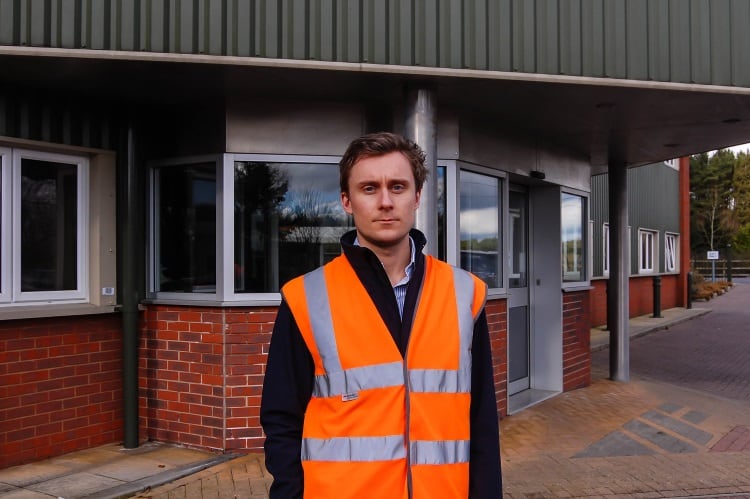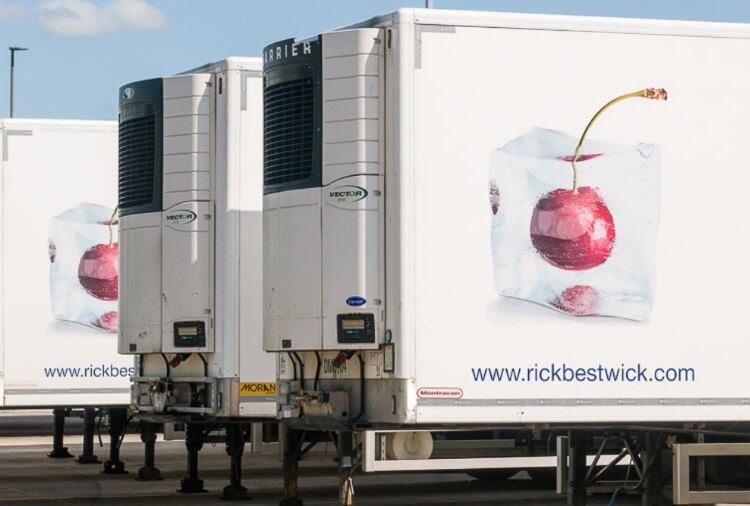Operating an impressive 23,225m2 of ambient warehousing space from its facility just off the M4 in Berkshire, Walker Logistics is clearly well-placed to meet all of the food industry’s key supply chain requirements.
However, just two decades ago it was a very different picture. “Before we entered the logistics world, we were solely a freight forwarding business,” says William Walker, sales director and son of company founder and current chairman, Philip.
“Our customers were asking us for more than just simply moving their product. They wanted us to store it, and to pick, pack and fulfil it to their end-customer – but we couldn’t at the time, because we didn’t have the systems, the processes or the people.”
With the logistics business established in 1999, the company invested heavily in the warehouse space, systems and people needed to succeed in the UK supply chain. Now, with 100 employees and sales offices around the world, it aims to offer a tailored fulfilment service that is in tune with the ever-shifting demands of food and drink manufacturers.
After earning degrees in business management and property development, it might have seemed inevitable that Walker would join the family business. But that wasn’t always the case.
“While there was no grand plan to join the business initially, the more I understood about it, the more passionate I became,” he says. “I grew to know more about the business as I went along. Today, I work closely with the managing director [Bob Montague] and the operational side of the firm to make sure we have the capabilities and services to offer what our clients are looking for.”
For Walker, it’s the diverse array of demands within the industry that keep him coming to work each day. In a sector dominated by big players like Wincanton, he takes pride in the comprehensive service he can provide to the firm’s customers.
“We do try to offer the complete supply chain,” he explains. “For many of our customers, we will be the one partner that handles the freight through to the storage and any reworking and fulfilment. We try to class ourselves as a one-stop shop.
“I like the job of bringing all those processes together and making sure we can service all of that. I enjoy the pace of it and no two days are the same.”
The increasingly dynamic nature of logistics is fuelled by a shift in the way customers want their goods delivered. Walker says retailers in particular are no longer prepared to wait for a large, bulky delivery once a week – they now want multiple smaller deliveries as and when they are needed.
“Once, you’d typically be supplying into the big retailers in quite large bulk and working to delivery timeframes and booking slots,” explains Walker. “It was relatively relaxed and a lot less pressured than it is now. Today, it’s very demanding, and manufacturers and retailers are looking for extremely quick turnaround times.”
To help the company adapt to the demands of an evolving supply chain, Walker Logistics has invested in software and systems it claims are needed to help manage the thousands of orders it handles every day.
“Technology is hugely important to any 3PL [third-party logistics] firm operating at a level where they’re storing and fulfilling tens of thousands of orders a day across various platforms,” says Walker. “You have to be quite heavily involved in technology to keep up with that.
“You also have to continually develop your technology – you can’t afford to stand still and think what you’ve got is acceptable or the best. You have to constantly review your systems to be able to keep pace.”
However, one form of technological advancement that the company isn’t planning to invest in is automation.
“Just from a warehouse point of view, it isn’t something that overly affects us,” says Walker. “We’re not on as big a scale as Amazon, where they are selling thousands of SKUs [stock keeping units] and products, so for us automation is not something that’s feasible.”
More pressing for Walker Logistics, and indeed the wider supply chain industry in general, is the growing demand to use more environmentally-friendly packaging.
As Walker explains: “We’re seeing a shift in packaging materials in terms of how it’s coming in and how customers are looking for it to arrive. That’s something you have to be very proactive with and keep on top of.
“There is certainly more emphasis on a fulfilment house or a 3PL to be involved with packaging and come up with ideas and suggestions on how that can be streamlined.”
Another aspect of the food and drink supply chain that could prove to be a challenge once the UK leaves the EU next March is a shortage of warehousing space to meet the needs of a population who might have to stockpile food, should the UK lose access to one of its biggest import markets.
Walker agrees that warehouse space is sparse, adding that Walker Logistics – along with many of the big players in the market – is looking at purpose-built warehousing to suit its needs.
“For the volume needed for stockpiling and other things, warehouse space could certainly be a challenge. There aren’t vast quantities of empty space lying around – and it’s something that will have to be addressed.”
In-depth
William Walker
Job title: Sales director
Age: 31
Marital status: Single
CV: Joined Walker Logistics in 2011 after completing a BA in business management at the University of Southampton, followed by a master’s in property development. Became sales director in 2013.
Away from work: A keen sportsman, Walker enjoys cricket, tennis and football, having represented Hungerford Town FC at semi-professional level. He also enjoys running and has completed the London Marathon. “I’m always looking for the next adventure,” says Walker. “I’m aiming to complete another running milestone sometime in the next couple of years.”
Favourite foods: “Anything that is healthy!”



